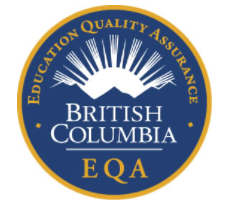Key Points at a Glance
- A higher accreditation body helps ensure that certain educational institutions abide by industry benchmarks.
- In Canada, postsecondary educational institutions are governed by an entity in a particular province or territory.
- An accreditation from an institution’s respective province or territory can lead to a designation as “Designated Learning Institution”, DLI and can help boost international student enrollments wanting to obtain a post-graduate work permit.
Having a “seal of approval” or accreditation is a win-win for educational institutions and their students. An accreditation serves as a proof of an educational institution’s competency and commitment to provide quality education to their students. Accreditation serves as a “quality assurance” system.
What are accreditations in higher education institutions?
Higher education or post secondary institutions come in different forms. These can be a public or private institution that offers liberal arts programs, science or technical-vocational courses. An accredited institution means that they have passed and abided by certain benchmarks set by a particular accreditation entity.
An accreditation acts as a seal of approval that the certain institution can carry out its function and course offerings that they provide in an effective manner. A student that studies in an accredited institution is assured that they will receive quality education. Moreover, an accreditation acts as a good advertisement for educational institutions.
Post-secondary institutions in Canada
Unlike the United States, Canada does not have a singular federal department or national system of education. Post-secondary institutions that are either public or private are “recognized,” “authorized,” “registered,” or “licensed” by their respective province or territory’s educational body.
A post-secondary institution can either be “degree” granting which offers Bachelor programs or a “non-degree” granting institution that offers certificate and diploma programs. Big educational institutions on the other hand can also offer both degree and non degree programs.
Although there is no singular regulatory body for academic institutions in Canada, there is a central repository of registration managed by the “Canadian Information Centre for International Credentials”. You can check if your post-secondary institution is officially listed in your respective or territory.
Post-secondary institutions in British Columbia
There are five types of post-secondary institutions as listed in the British Columbia website. These are:
- Public post-secondary institutions are authorized under provincial legislation to deliver post-secondary education and training in B.C.
- Private and out-of-province public degree-granting institutions are authorized to deliver degree programs in B.C. under the Degree Authorization Act
- Private training institutions are regulated under the Private Training Act – the Private Training Institutions Branch (PTIB) administers how standards for these schools are met*
- Theological institutions in B.C. have statutory authority under a Private Act to offer specific programs
- Aboriginal-controlled post-secondary institutes offer courses and programs to adult Aboriginal learners.

The government of British Columbia awards a “Education Quality Assurance” (EQA) for both public and private educational institutions as a testament to the quality of education the institution offers.
The EQA serves a seal of approval that the educational institution meets or even exceeds the benchmark set by the province. B.C.’s Ministry of Advanced Education, Skills & Training is in charge of overseeing, monitoring and enforcing of policies and standards for education set by the province.
Note that EQA schools are allowed to host or accept international students. Post-secondary education institutions that offer programs to international students are not required by law to be EQA designated if the course that they offer for international students is just six months or less.

What can a designation or accreditation do for a higher education institution?
In Canada, all primary and secondary institutions are considered as a Designated Learning Institution (DLI). However, post secondary institutions must apply and qualify for a designation.
Being listed as a DLI will help-post secondary institutions to attract international students wanting to have a Post-Graduate Work Permit (PGWP). Students that earn a degree, diploma or certificate from a DLI are eligible to apply for a PGWP.
Gaining a PGWP is one of the steps taken by international students to gain employment in Canada after graduation, even as a first step for eventual residency!
A post-secondary institution that is “recognized,” “authorized,” “registered,” or “licensed” with the respective province or territory will be the choice of domestic students who want to study and apply for financial aid from the government– students who study at “unregistered” institutions will not be able to do so.
Moreover, a recognition from the government is a nod to the institution’s capacity to teach students. Ultimately, a designation or accreditation from the province or territory is a win-win for both post-secondary institutions and their students.
References:
www.collegeanddegrees.2021. Understanding Accreditation. [online] Retrieved from: https://www.collegesanddegrees.com/accreditation
www2.gov.bc.ca. 2021. Education Quality Assurance – Province of British Columbia. [online] Retrieved from:

